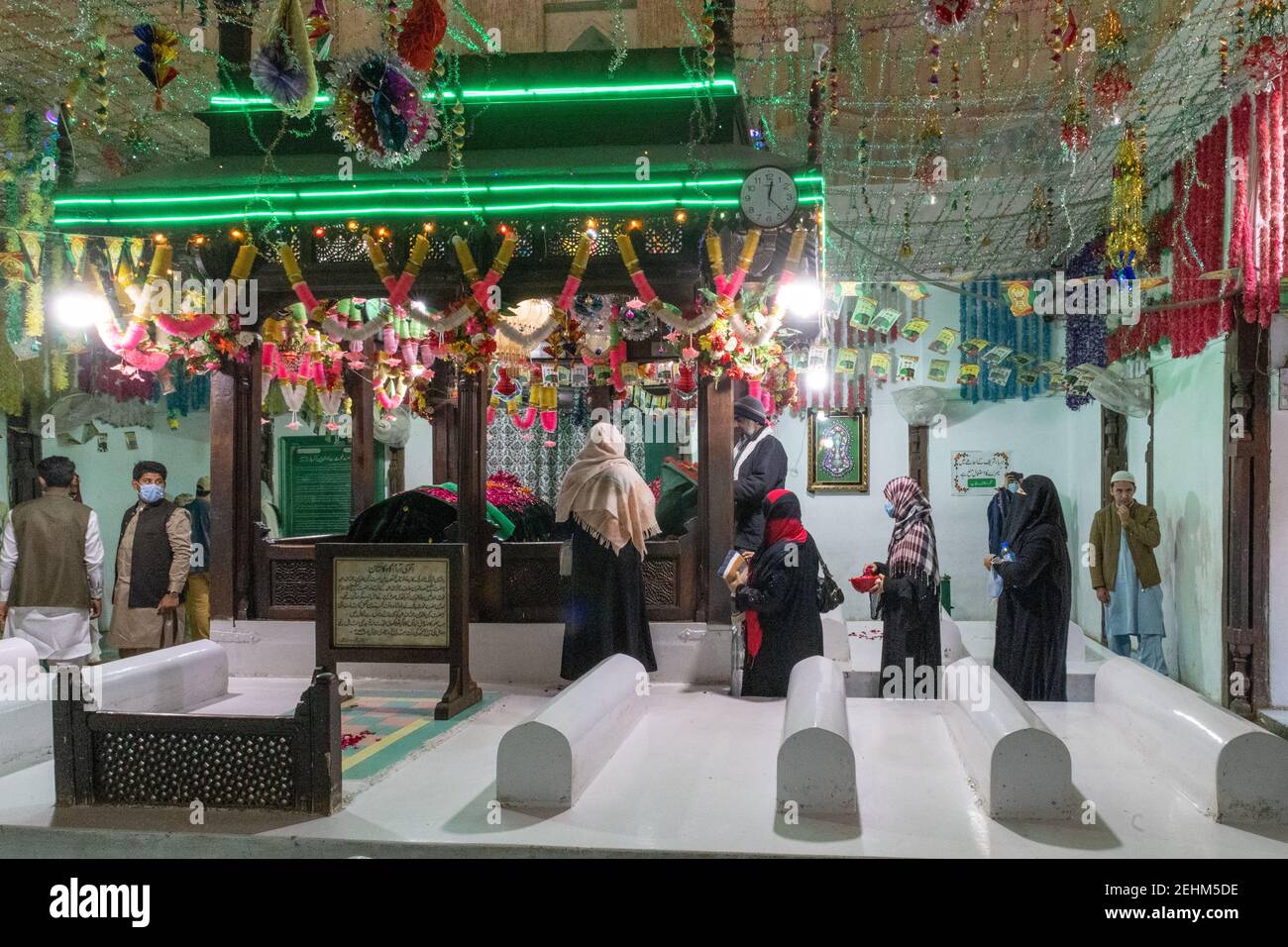Pilgrims Praying at the Shrine of Bahauddin Zakariya, Multan, Punjab, Pakistan

Image details
Contributor:
François-Olivier Dommergues / Alamy Stock PhotoImage ID:
2EHM5DEFile size:
59.1 MB (5.3 MB Compressed download)Releases:
Model - no | Property - noDo I need a release?Dimensions:
5568 x 3712 px | 47.1 x 31.4 cm | 18.6 x 12.4 inches | 300dpiDate taken:
30 December 2020Location:
Multan, Punjab, PakistanMore information:
Built in the 13th century, the Shrine of Bahauddin Zakariya is located in the city of Multan, Punjab, Pakistan. The tomb is dedicated to the Muslim mystic Bahauddin Zakariya, founder of the Suhrawardiyya order of Sufism. It considered to be one of the most important shrines in southern Punjab province, and is the prototype for Multan's distinct architectural style. Abu Muhammad Bahauddin Zakariya, later known simply as Bahauddin Zakariya, was born around 1170 CE in Kot Kehror (now known as Karor Lal Esan), a town near the ancient city of Multan. Bahauddin Zakariya descended from the lineage of Asad Ibn Hashim, and was hence a Hashmi, or direct descendant of the same clan lineage as Muhammad. The renowned Kurdish-Persian Sufi master Shahab al-Din Abu Hafs Umar Suhrawardi of Baghdad awarded Zakariya the spiritual title Caliph in Baghdad, and then assigned him back to the Multan region. For fifteen years, Zakariya travelled to different cities in southern Punjab, where the order was able to attract large numbers of converts from Hinduism. Zakariya finally settled in Multan in 1222. Under his influence, Multan became known as "Baghdad of the East." Zakariya became a vocal critic of Multan's ruler at the time, Nasir-ud-Din Qabacha, and sided with Iltutmish, the Mamluk Sultan of Delhi when he overthrew Qabacha in 1228. Zakariya's support was crucial for Iltutmish's victory, and so he was awarded the title Shaikh-ul-Islam by Iltutmish to oversee the state's spiritual matters, in gratitude for his support. Zakariya was also granted official state patronage by the Sultan.